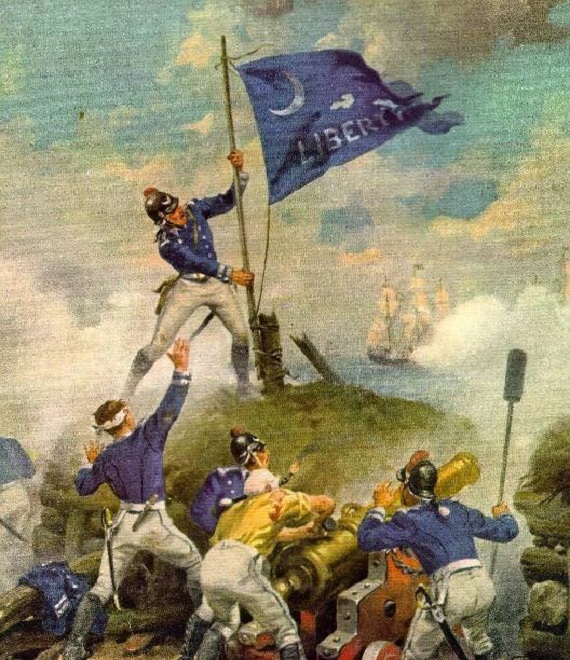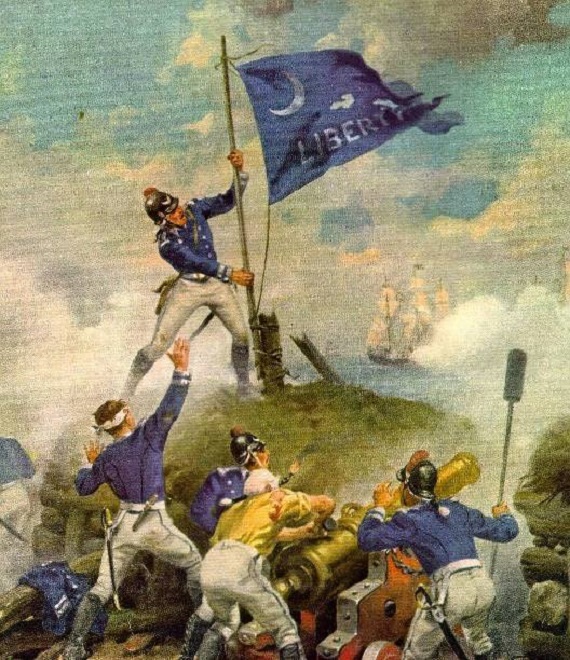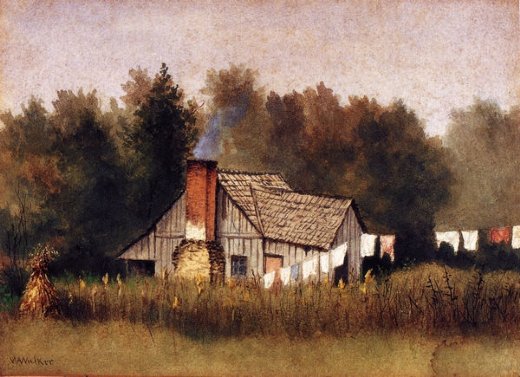In the spirit of historical course correction, I herewith submit some thoughts to those who may find themselves in an American Revolution between 1774 and 1783.
1. Rule number one. Don’t cooperate with any leaders, even if you appointed them. If you do, such cooperation will later be taken as proof that you were just obeying the commands of some “sovereign” authority the whole time. Watch out especially for the more ambitious lot in the Continental Congress. You know their names.
2. Rule number two. Don’t volunteer to be in any army, Continental or otherwise, that adopts any European-style rules under which you can be flogged, or even murdered out of hand, for a long list of trivial offenses. If you contribute to the coming-into-being of such a structured, half-British, half-Prussian entity (thanks much, John Adams!), you and yours are bound to hear, later, that this necessarily means that whoever made the rules and directed that army: the Continental Congress, George Washington — people like that, had hold of some big, immeasurable thing known rather grandly as “the war power.” The same claimants will say that since they held this war power – a noteworthy “incident of sovereignty” (they will quote you great reams of Vattel, Pufendorf, and some Dutch guys on this point) — they must indeed have been “sovereign,” or at least entrusted with the sovereign power, the while.
On these considerations, you and yours will owe these people, or any structures they later set up, “allegiance”: it’s them or the return of George III. If you fought the revolution because you wanted to be left alone in your locality with your inherited freedoms, you will find out that, no, things aren’t done that way in the Real World. No, indeed, my friends; in thinking that, you show how much you are overrun with a “leveling” spirit and how much you suffer from the Excesses of Democracy. If not wholesomely held in check by a centralized American mercantilist Government of continental scope, complete with standing Army, you will soon be committing outrages against good order and joining Shay’s Rebellion. All property will be under threat, especially that property these fellows expect to acquire by manipulating their new system – coming soon, in 1789 — which will be said to “run of itself.” (Eventually it will run all over the globe.)
Even worse, the general pack of historians will side with your “betters” and take to lecturing you for having had “little faith.” And wait ‘til you see what they expect you to have faith in. Oh boy. (Hint: It involves periodic blood sacrifices to the new Mithra, and that’s no bull.)
3. Rule number three. Don’t join any “unions” on any basis whatsoever. Make it plain that you are working with folks in other colonies because they are throwing off the same British Empire that you – separately – are throwing off. Let them know that you would just as soon shoot them, except you don’t dislike them enough yet. Any documents involving your state’s cooperation with other states in the struggle against His Majesty George III should abound with words and phrases like “treaty,” “alliance,” temporary,” “until British power be expelled,” and “we’ll pay when we get the money, if we damned well feel like it.”
If you fail to take these precautions, you will shortly be informed of the many implications of the word “union.” You may protest all you like that the word is not self-explanatory, or that mere use of it does not exhaustively set out exactly what political relations constitute “union.” Your patient social betters will lecture you to the effect that the “union” – that word you should have avoided – is “older than the states”; that the mere word itself “proves” the existence of a Single American People from time out of mind, or from at least since around 1774. And shut the door on your way in; you won’t be allowed to leave. In this respect, this union will be less generous than the British Empire will eventually come to be.
4. Rule number four. If you’ve already made some or all of the above mistakes, for God’s sake don’t go ratifying any new 18th-century grocery lists. Any “reform” of the existing system is bound to suit the goals and ambitions of those guys we warned you about.
And mark well how an interesting theorem arises here. Any committed localists that you send to Philadelphia or New York, or some such place, to deliberate on common, confederal matters, will go bad within a year. Having riveted their attention on these common matters, they will develop a bad case of Continental Vision and will soon be agitating for more power at the center, where the real Action is or, in their new, broader view, should be.
Recall these guys at once. Emulate Rhode Island and attend the meetings irregularly. Better yet, emulate Vermont, that outfit that nobody recognizes.
Above all, don’t ratify. Don’t wait for Patrick Henry to tell you what will happen.
5. Rule number five. Do all the things recommended above, and you will have some chance of actually obtaining your goals by means of this revolution. Otherwise, your descendants will be harangued in the following manner:
… [W]e are all Hamiltonians today. If Jefferson had actually won out… there would have been no T.V.A. – but, alas, for those who would count this loss a gain, there would have been no F.B. I. Neither of these institutions could conceivably be justified on a strict construction of the ‘necessary and proper’ clause. The Federal Reserve System would have been an impossibility. There could have been no Interstate Commerce Commission, no federal control of marijuana. Investigations by committees of Congress would have been out of the question…. The federal organization would have possessed a number of scattered and discontinuous paper powers…. (Charles Black, The People and the Court: Judicial Review in a Democracy (New York: Macmillan, 1960), 75-76.)
“What’s marijuana?” you say. Don’t worry about it; it’s just hemp. Don’t make a federal case out of it. (Wait, you don’t know that now obsolete expression.) T.V.A., F.B.I., Federal Reserve, Interstate Commerce Commission? Never mind. Take my advice and you’ll get along just fine without knowing any more about such things. Concentrate on those “scattered and discontinuous powers.” That’s the most you should ever willingly put up with, provided you leave yourselves some way of recalling them.
Oh, and if you see anybody rattling on about “national security,” run like Hell.
Well, best of luck, y’all. I hope this reaches you via trans-temporal post before it’s too late.
Sincerely,
Joseph R. Stromberg,
Yr 21st Century Correspondent via timefare.warp .







